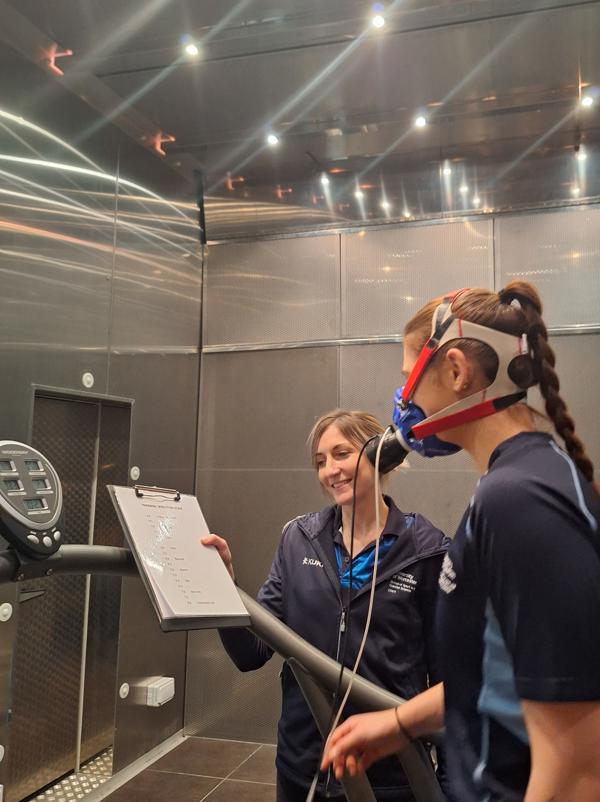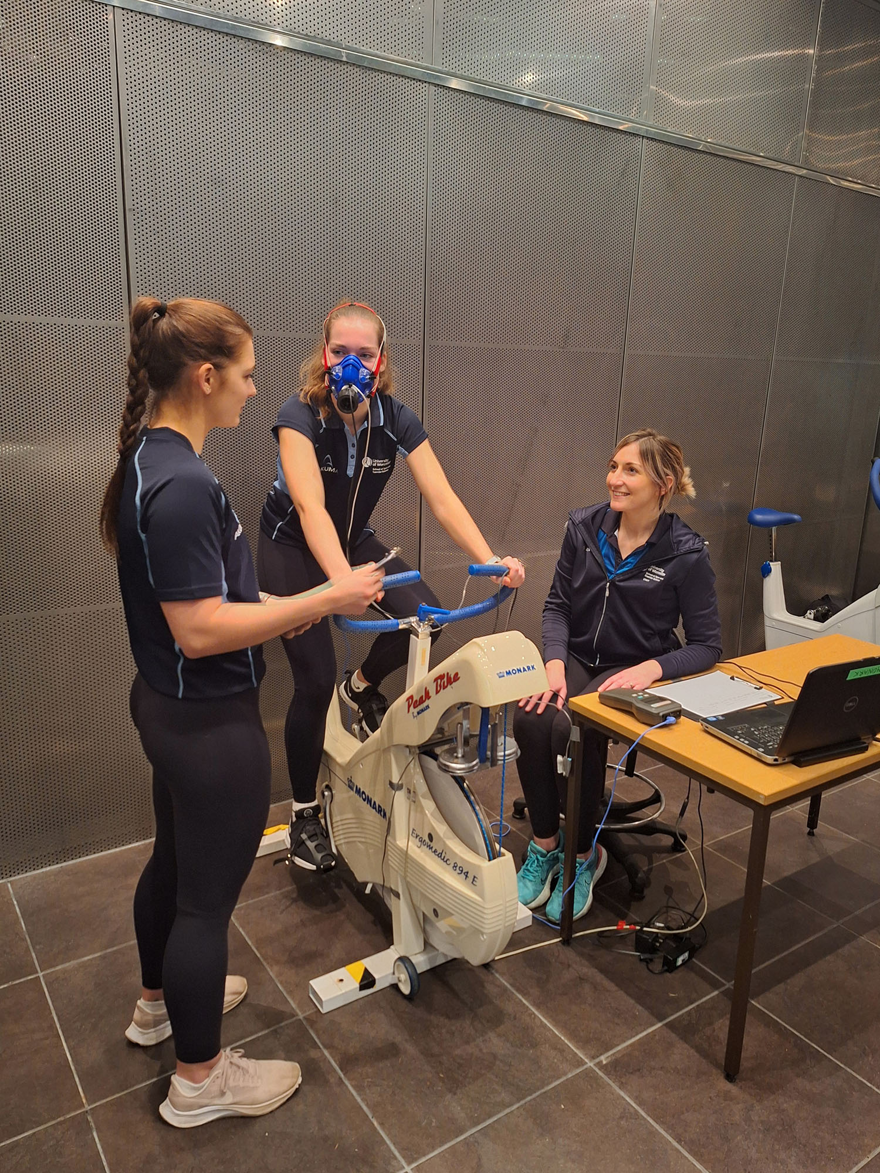Dr Jessica Mee has been given a prestigious fellowship to complete a vital new study into female health.

A new study being launched at the University of Worcester aims to explore how heat affects females and offer advice on ways to manage it.
Dr Jessica Mee, a Senior Lecturer in Sport and Exercise Science, has been awarded almost £1m in funding from the UK Research and Innovation (UKRI) as part of its Future Leaders Fellowship award to undertake this research.
Most of the evidence available on the impacts of heat on the human body has been built on research which involves males, and little is truly understood about the impacts on the female body.
From the effects of the warming climate to hot offices, the research will explore how heat affects females of varying ages and levels of activeness.
Jessica said: “The overarching aim of the study is about improving females’ health and performance by mitigating and managing heat strain. We’ll be evaluating a range of females, from those who are sedentary, physically active, and trained, as well as those of different body sizes, ages and menstrual states.”
Jessica’s research will not only expand on the current knowledge of heat mitigation and management strategies but will examine the specific ways it impacts the female body.
She said: “The issue with the current research is that there is a clear under-representation of females taking part in studies. This is likely due to the additional complexity, time and expense associated with the menstrual cycle and hormonal contraceptives, so an improved understanding of females in this area where the study uses robust and high-quality research methods is an urgent priority.”
Jessica continued: “Traditional heat mitigation strategies, such as air conditioning, are often not accessible to some of the most vulnerable such as in areas of poverty and in occupations involving outside activity. These strategies also contribute to greenhouse gas emissions which increase the risk of future extreme heat events, so this research will be looking at sustainable and accessible strategies to mitigate and manage heat strain.”
“Our research will look to provide evidence-based guidelines to support females for when an extreme heat event occurs like the heat wave which we all experienced in the summer of 2022. We will evaluate our participants health and performance using a bespoke environmental chamber housed in the School of Science and the Environment, including looking at their productivity and how present they are in the workplace.”
Jessica said she hopes the study will not only improve understanding of how heat impacts women, but that it’ll kickstart more research into the area.
“Once we’ve examined the current landscape of existing research and conducted our laboratory studies, we will create education resources and practical guidelines on how best to mitigate and manage heat strain, and also change the landscape and encourage more researchers to conduct studies on females-” she said.

Dr Neil Maxwell from the University of Brighton will be a co-investigator on the project.
He said: “A priority of the study centres around evaluating heat mitigation strategies to offer advocacy to help females across the age spectrum manage the heat better”.
He continued “This is more important than ever with our warming climate, and with so much evidence coming from studies on males, it’s imperative to ensure future guidelines draw from bespoke, female based data”.
Neil’s involvement as co-investigator will involve him sharing his knowledge and offering critical support throughout the fellowship.
He said: “I have been fortunate enough to work with Dr Mee for many years now and I have seen her grow into an independent, well respected thermal physiologist and I relish the chance to support her in this new and exciting challenge. I truly believe she will make a measurable difference to women across the world through this fellowship.”